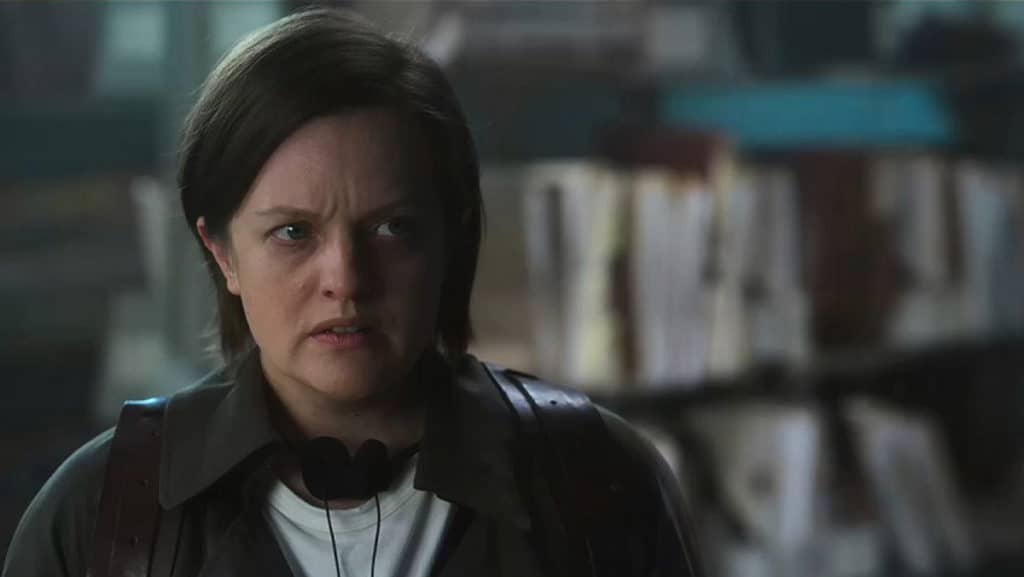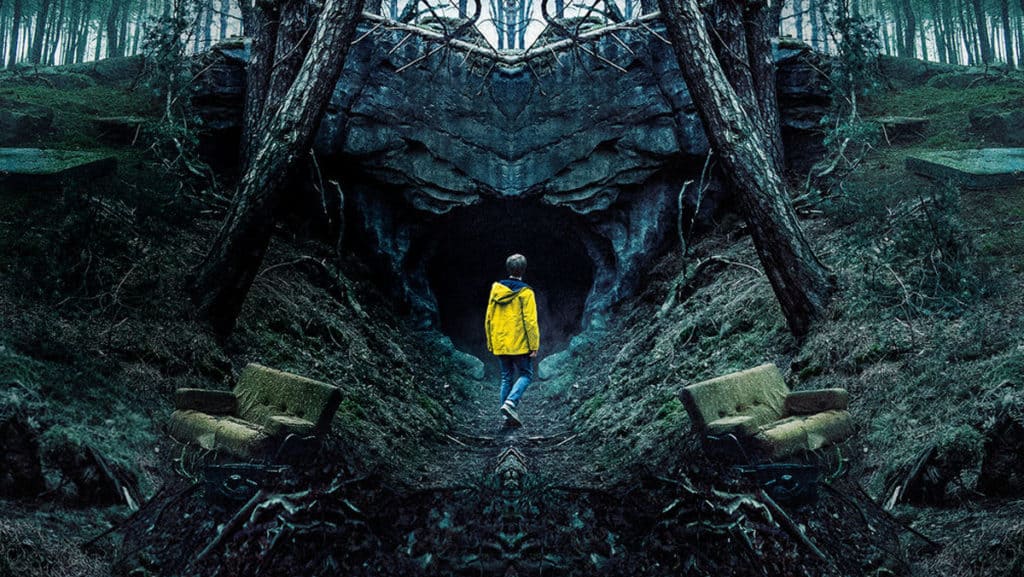Good Bye Lenin! is a sharp and satirical film that critiques the transition from socialism to capitalism while exploring the historical, identity-based, and social complexities of Germany after the fall of the Berlin Wall. Even its title alone evokes the end of an era—an era defined by the Cold War, ideological division, and the wall that physically and symbolically separated East and West.
A Human Perspective on Political Transformations
Wolfgang Becker’s Good Bye Lenin! stands as one of the most impactful German films of the 2000s. While at its core a family drama, the film also provides a poignant depiction of the profound political and social upheavals that followed the fall of the Berlin Wall, illustrating the struggles of East Germans as they confronted an unfamiliar new world.
The story revolves around Christiane Kerner, a devoted supporter of the German Democratic Republic (GDR), who suffers a heart attack and falls into a coma. Months later, she regains consciousness—only to awaken in a radically transformed world. The socialist regime has collapsed, East and West Germany have reunified, and capitalism has rapidly replaced the economic and cultural structures of the past. Doctors warn that any shock could endanger Christiane’s life. Knowing that his mother remains deeply attached to the ideals of the GDR, her son, Alexander, makes the bold decision to shield her from this harsh reality. What begins as small adjustments to her surroundings gradually evolves into an elaborate deception—Alexander, with the help of his friends, fabricates fake news broadcasts, rebrands consumer products, and even resurrects long-obsolete socialist brands to maintain the illusion that East Germany still exists.
More than just a story of love, family, and sacrifice, Good Bye Lenin! subtly explores the tension between communist nostalgia and the capitalist reality of post-unification Germany. The film masterfully demonstrates how abrupt political change not only dismantles governments but also reshapes everyday life and personal beliefs. One of its most symbolic moments comes when East German soldiers solemnly lower the GDR flag, just as Coca-Cola trucks enter and exit the frame—an unforgettable image encapsulating the fall of socialism and the overwhelming influx of capitalism. This transformation does not merely redefine a political system; it also leaves those caught in its transition struggling with uncertainty and displacement.
With a blend of dark humor and heartfelt drama, Good Bye Lenin! takes audiences on an emotional journey through the aftermath of East Germany’s collapse, raising profound questions about truth, memory, and identity—questions that resonate beyond German history, echoing in any society grappling with sudden political and social change.
Media, Deception, and the Rewriting of History
One of the most brilliant aspects of Good Bye Lenin! is its exploration of media’s role in redefining reality and shaping public perception. In a desperate attempt to shield his ailing mother from the harsh truth of East Germany’s collapse, Alexander, with the help of his friend, fabricates fake television broadcasts. He constructs an imaginary world where the German Democratic Republic (GDR) still exists, socialist ideals remain intact, and nothing has changed. What starts as a simple lie to protect his mother gradually evolves into an elaborate web of deception that ensnares not only her but Alexander himself in an alternative reality.
In one of the film’s most satirical yet thought-provoking scenes, Alexander orchestrates a fake news report announcing that disillusioned West Germans, weary of capitalism, are defecting en masse to East Germany. This absurd reversal of Cold War-era propaganda is more than just a comedic moment; it serves as a biting commentary on the power of media and its ability to shape public consciousness. The film highlights how media can manipulate narratives to influence not only how people perceive a particular reality but also how collective memory is constructed—whether in authoritarian regimes that wield propaganda as an ideological tool or in capitalist societies where mainstream media selectively frame and present news to create a specific image of reality.
Good Bye Lenin! extends beyond the historical context of East Germany to address a universal issue: the power of media in shaping memories, narratives, and ultimately, collective identity. The film does not merely critique state-controlled propaganda under socialist rule; it also questions the post-reunification media landscape. Many East Germans, who once believed capitalism would bring prosperity, found themselves feeling alienated in their own country. The integration of East and West Germany was neither the utopia promised by Western media nor the failed socialist vision of the past. The film subtly suggests that mainstream media at the time presented an idealized narrative of reunification—one that did not necessarily align with the lived experiences of many former East Germans, whose nostalgia and sense of loss found no place in the official story.
What elevates Good Bye Lenin! beyond a historical film is its profound meditation on the nature of truth. Is truth simply what actually happened, or is it what people choose to believe? Can a comforting illusion be more valuable than a painful reality? By blending humor with tragedy, the film not only offers a compelling portrait of the post-Cold War world but also raises a fundamental question: Who controls the narrative of history, and how closely does that narrative align with the truth?
Nostalgia for a World That No Longer Exists
Does longing for the past stem from a genuine belief in an ideology, or is it merely a reaction to the fear of change and the uncertainty of a new world? After the reunification of Germany, many East Germans suddenly found themselves in an unfamiliar society with different values, leading to a profound sense of displacement and alienation. Good Bye Lenin! captures this reality, illustrating that the transition from socialism to capitalism, while bringing newfound freedoms, also introduced identity crises and economic instability as familiar structures of the past disappeared overnight.
Several scenes in the film depict the rapid transformation of East Germany through the influx of Western brands, capitalist advertising, and the changing urban landscape. For Alexander, these shifts create a stark contrast between the world he once knew and the one he now inhabits. Initially, he manipulates reality to protect his mother, but over time, he realizes that he himself has become ensnared in this illusion. This reflects the experience of many East Germans who, despite their criticisms of the socialist system, found themselves struggling to adapt to the new capitalist order.
One of the film’s most striking moments occurs when Alexander visits West Germany for the first time and sees a woman on television pouring whipped cream over her bare body. The sight shocks him, as if the values and norms he had taken for granted have suddenly collapsed. This moment powerfully illustrates that the transition from one ideological system to another is not only a political and economic shift but also a profound cultural and moral upheaval.
Historical and Social Parallels with Iran
One of the most striking aspects of Good Bye Lenin! is its resemblance to the socio-political landscape of Iran. The film’s portrayal of East Germany—a society where people fear speaking the truth, consumer goods are uniform, propaganda dominates, leaders are lost in endless monologues, military parades reinforce state power, media distorts reality, and young people dream of leaving the country—feels eerily familiar.
The first time I watched this film, the events of 2009 had not yet unfolded, yet even then, the similarities were undeniable. After the suppression of the post-election protests, Good Bye Lenin! resurfaced in my memory, compelling me to watch it again through a different lens. The scenes of East German protests, street crackdowns, plainclothes officers wielding batons against demonstrators, and a younger generation striving for change bore a striking resemblance to Iran—where protests erupted for life, freedom, and human dignity.
At the film’s conclusion, when Alexander’s mother finally learns the truth, his fabrications are no longer necessary; the wall of oppression crumbles in her mind. This moment resonated deeply with what many of us experienced on June 13, 2009—the day fear began to crack, even if the system itself remained standing.
Good Bye Lenin! is not merely an emotional tale of love and family; it offers a sharp political analysis of German reunification and the collapse of communism in Eastern Europe. The film neither glorifies socialism nor endorses capitalism; instead, it presents a nuanced, humanistic, and satirical examination of the complexities and contradictions of this transitional era.
Ultimately, the film poses a profound question:
Do we long for the past because it was truly better, or simply because we struggle to envision a brighter future?





